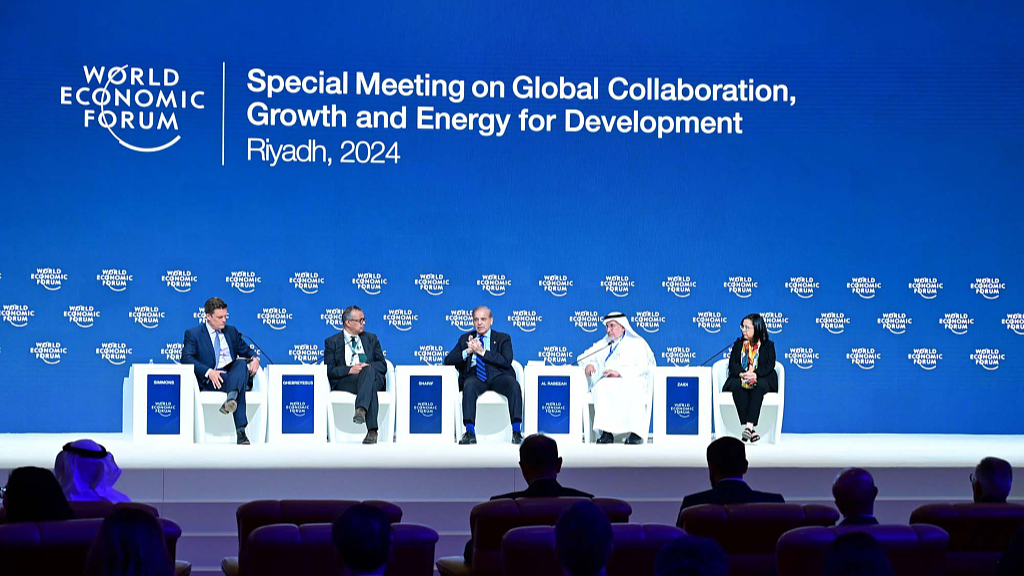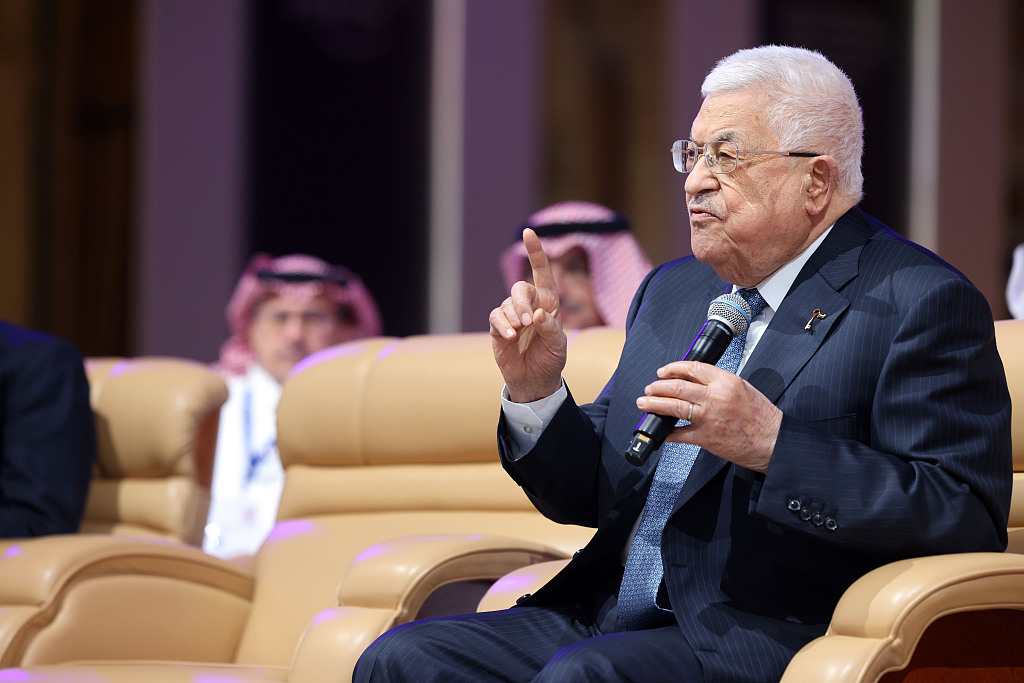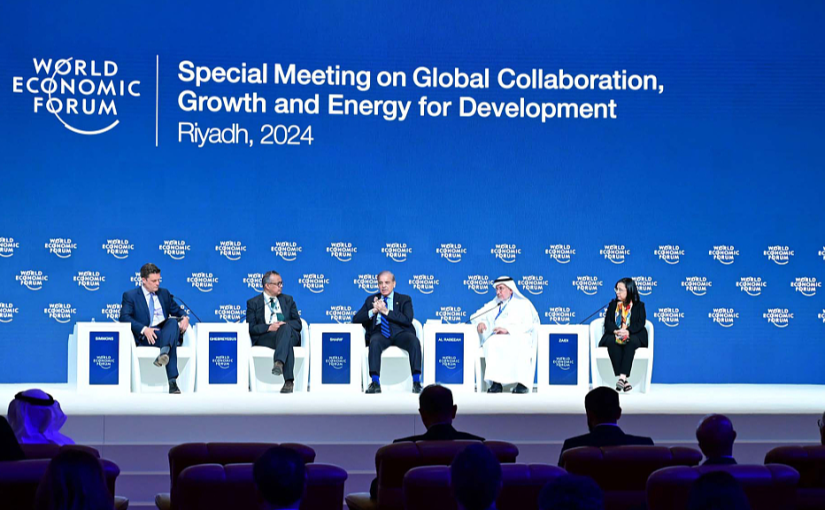 A special meeting of the World Economic Forum is held in Riyadh, Saudi Arabia, April 28, 2024. /CFP
A special meeting of the World Economic Forum is held in Riyadh, Saudi Arabia, April 28, 2024. /CFP
A special meeting of the World Economic Forum is held in Riyadh, Saudi Arabia, April 28, 2024. /CFP
Saudi Arabia on Sunday called for regional stability, warning of the effects of the ongoing Israel-Hamas war on global economic sentiment, at the start of a summit attended by a host of Gaza mediators.
U.S. Secretary of State Antony Blinken, Palestinian leaders and high-ranking officials from other countries trying to broker a ceasefire between Israel and Hamas are on the guest list for the summit in Riyadh, the capital of the world’s biggest crude oil exporter.
The Gaza war, along with conflicts in Ukraine and elsewhere, put “a lot of pressure” on the economic mood, Saudi Finance Minister Mohammed al-Jadaan said at one of the first panel discussions of the two-day World Economic Forum (WEF) special meeting.
“I think cool-headed countries and leaders and people need to prevail,” al-Jadaan said. “The region needs stability.”
The Gaza conflict, which started on October 7 last year, has resulted in the deaths of more than 30,000 Palestinians, with children and women comprising the overwhelming majority of those killed, according to the Ministry of Health in Gaza at a recent briefing. At least 75,000 people have been injured in Israeli attacks since the start of the conflict, about four out of every 100 people in Gaza, said the ministry.
Speaking in Riyadh, Palestinian President Mahmoud Abbas said the U.S. “is the only country capable” of preventing Israel’s long-feared invasion of Rafah city in southern Gaza.
“We appeal to the United States of America to ask Israel to stop the Rafah operation,” Abbas said, warning it would harm and displace civilians, and be “the biggest disaster in the history of the Palestinian people.”
Saudi Planning Minister Faisal al-Ibrahim told a press conference on Saturday, previewing the summit, that the world is “walking a tightrope right now, trying to balance security and prosperity,” adding that “one misjudgment or one miscalculation or one miscommunication will further exacerbate our challenges.”
Saudi Foreign Minister Prince Faisal bin Farhan said only “a credible, irreversible path to a Palestinian state” will prevent the world from confronting “this same situation two, three, four years down the line.”
WEF President Borge Brende said there was “some new momentum now in the talks around the hostages, and also for… a possible way out of the impasse we are faced with in Gaza.”
Hamas said on Saturday it was studying the latest Israeli counter-proposal regarding a potential ceasefire in Gaza, a day after media reports said a delegation from mediator Egypt arrived in Israel in a bid to jump-start stalled negotiations.
 Palestinian President Mahmoud Abbas speaks at a World Economic Forum meeting, Riyadh, Saudi Arabia, April 28, 2024. /CFP
Palestinian President Mahmoud Abbas speaks at a World Economic Forum meeting, Riyadh, Saudi Arabia, April 28, 2024. /CFP
Palestinian President Mahmoud Abbas speaks at a World Economic Forum meeting, Riyadh, Saudi Arabia, April 28, 2024. /CFP
Spotlight on Saudi Arabia
From the outset Saudi Arabia has worked with other regional and global powers to try to contain the Gaza conflict and avoid the type of conflagration that could derail its ambitious economic reform agenda known as Vision 2030.
Saudi Arabia is trying to open up to the world, luring business leaders and non-religious tourists. Hosting international events such as the WEF meeting allows it to showcase social changes such as reintroducing cinemas and lifting a ban on women driving.
Yet questions persist about just how much of Vision 2030 will be achieved and when, with special focus on signature projects such as NEOM, a planned futuristic megacity. In December, al-Jadaan said officials had decided to push the timeframe for some major projects past 2030, without specifying which, though he also noted that others would be accelerated.
Saudi Arabia’s GDP growth was nearly flat last year after several oil production cuts. Al-Jadaan stressed on Sunday that non-oil GDP growth was “very healthy” at 4.4 percent and that “Vision 2030 is about, actually, the non-oil GDP.”
Saudi Arabia’s economy has for decades relied on oil and the country has been making efforts to diversify its economy. Minister of Industry and Mineral Resources Bandar Alkhorayef said at the forum that Saudi Arabia will strengthen investment in the electric vehicle sector and it is sourcing lithium from overseas to produce EV batteries.
(With input from AFP)
